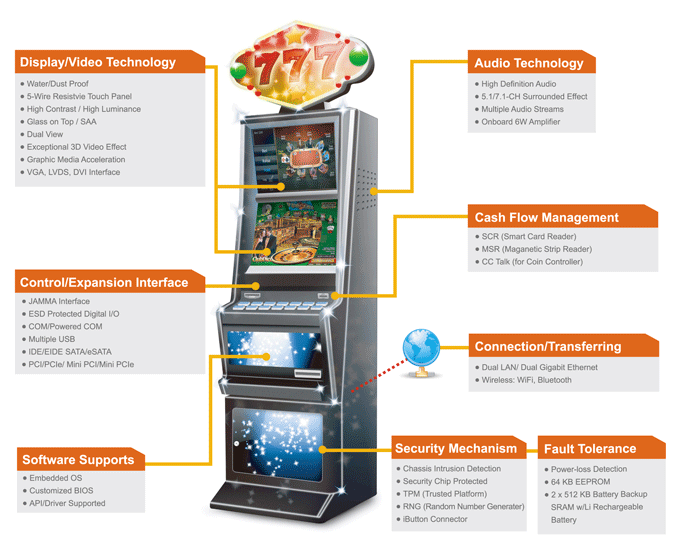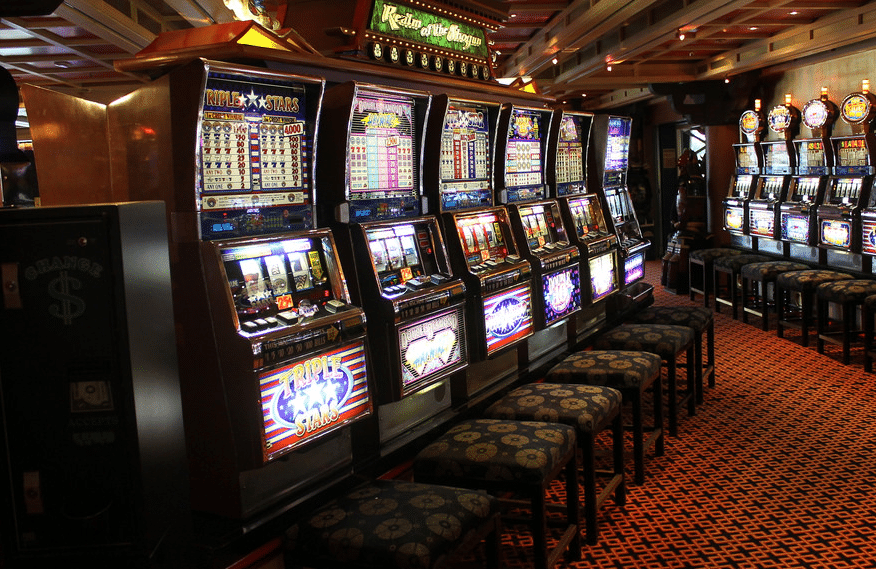RNG is an acronym for ‘Random Number Generator’. An RNG in the simplest terms is a microcomputer, or software, which will generate hundreds of numbers per second, even when a game is not being used.
Online casinos fulfill this requirement for online slots by using a random number generator (RNG). The random number generator is an algorithm generated by a computer that online casinos use to randomize the results of a spin. It does this by generating a sequence of numbers, each number corresponding to a symbol on the reels, which one cannot.
If you enjoy playing software-based gambling titles, you might have wondered how the game’s random numbers are generated. With this in mind, here is our guide to random number generators (RNG’s), covering everything from how they work, to how important they are to your slot game experience.
What is the RNG?
RNG is an acronym for ‘Random Number Generator’. An RNG in the simplest terms is a microcomputer, or software, which will generate hundreds of numbers per second, even when a game is not being used.
Each and every number allocated to the reel will be divided by the set value of the game. Usually, the end result will be shown as numbers from the minute you hit ‘spin’.
Any software game based on the premise of a random match, for example; slots, blackjack, roulette and video poker, will all need to use an RNG. An example of this can be seen when playing a 3 reel slot, insofar that the 3 numbers generated by the RNG will then be allocated to each of the individual reels.
For instance, the set value could be 128. Each of the numbers would then be divided by 128, then each individual reel will be allocated 128 numbers (each with a symbol).
Let’s say the number of the first reel is 128,000,030. The remainder of 30 would be calculated after being divided by the value of 128. The first reel will have a symbol (the equivalent of 30), each reel then goes through the same process.
Slots must provide a minimum frequency or a minimum payback of wins/both depending on the jurisdiction.
What’s an EPROM chip?
Used in land-based casinos, the EPROM (Erasable Programmable Read-Only Memory) is in control of the weighting of the slot machine. This will theoretically decide how much money the player will win (the payback percentage), after landing that all-important winning combination.
Casinos tend not to change their EPROM chip’s very often, as it would be bad business to frequently tighten, or loosen the slot’s payout. With that said, from time to time a casino will change their EPROM chip, however, this will never alter the number randomness. Albeit, this will lead to the payout ratio changing.
Are there different types of RNGs?
Yes, there are. Although the majority of random numbers used on a computer platform use ‘pseudo-random’, there are two different types of RNGs:
- PNG(Pseudorandom Number Generator: PNG uses mathematical algorithms in a specific order (decided by the developer).
The provider will generate a software algorithm, simulating a roulette wheel, whilst continuously calculating the next result. When a player presses start or play, for example, the combination has already been predetermined.
To begin with, numbers with thousands of digits are used. The number π (a sequence with over five trillion digits) will often be used in this instance. The rest of the value is determined by a handful of mathematical processes, such as; multiplication, addition, rounding, subtraction. This procedure is mostly used by online establishments.
- HRNG (Hardwear Number Generator): – From square one, HRNG will generate random numbers using compound values.
Casino Random Number Generator Programming
A mechanism will then record radioactive isotope, producing a number of different electrons per second. A variety of starting points are used to generate these numbers, all of them are random, and generated by atmospheric phenomena or physical objects.
These devices are mostly only used at land-based casinos, arcades, and pubs.
Can you cheat a RNG?
Imagine cracking that RNG code? Ever since the early days of slot machines, a.k.a ‘one-armed bandits’, players have been trying to calculate when a machine will pay out a large win, based on patterns observed.
Nowadays, the online gambling industry has developed remarkably. Since moving into the online casino arena, games and slot machines have now taken on a variety of different shapes.
MD5 is a crypto-resistant mechanism which all software algorithms utilise, providing a level of protection against hackers.
You could perhaps hack a secure generator, and use a corrupt RNG, with the right skills and knowledge. The problem with this is that it would take many many hours, and the operator’s internal security systems would more than likely be alerted to suspicious activity, before you got anywhere near.
How important are RNG’s?
No matter whether your casino of choice is land based or online, RNG’s ensure that casino games are considered fair play for all customers. Most new models supply complex algorithms and many levels of protection, to protect against hackers. This promises a more honest game to players.
The RNG is essential in all slot games, in order to obtain that crucial random outcome. The randomness remains the same, regardless of the payout, for instance, every casino will most certainly have a built in advantage, such as a ‘hold percentage’, otherwise known as the ‘house edge’.
Can I trust a RNG?
You can. If the casino of your choice is licenced, then you can be sure that test laboratories and gaming boards will be testing the randomness of every single game.
Independent auditing companies will be hired by online casinos, in order to prove and test the fairness and randomness of all games. Once the agency has established the legitimacy of the casino, the casino will be awarded the RNG Certificate of Compliance.
As long as you are playing at a Gambling Commission regulated slot site, no matter how many times you get ‘unlucky’, you know that it’s just the RNG doing its job. Of course, RNG’s can work in your favour as well, whether you believe in lady luck or not.
What is a RNG Certificate of compliance?
Slot Machine Random Number Generator Worksheets
The RNG certificate of compliance is basically an assurance to players that upon winning, a payout is guaranteed. It also demonstrates the integrity of an online slot title.
Before an online casino can even launch a slot or game, and make it available to the general public, it must pass various tests. These tests are carried out by independent laboratories, which makes sure each and every slot meets regulatory requirements and compliance standards.
Each slot title will then need to be individually certified by each regulator. While this covers the Gambling Commission for UK players, other jurisdictions are often involved, too. Some of the better-known testing agencies for carrying out such tests are iTech, eCOGRA, GLI, TST, and NMi – all of which are regulated by the Gambling Commission.
If an online casino is operated legally and transparently, within the specific jurisdiction, they will hold the RNG certificate, and will more than likely proudly display an auditor icon on its website.
You will generally find that on the casino’s homepage, there will be a logo of the auditor who carried out the testing, and awarded the RNG Certificate.

What is the RTP and why does it matter?
Slot Machines Are Not Random
It’s vital you understand fully the importance of RTP as it is a very important factor when it comes to your chances of walking away a winner.
RTP is an acronym for Return to Player. As the name suggests, the RTP is the percentage of wagered money which a game will return to a player. Calculated on a scale of 1 to 100, and usually between 94-96%.
It’s with thanks to lower overheads that some online slot games now even offer an RTP of upto 99%, which is huge. It is also worth noting that the RTP percentage is based on an average, which is obtained by playing a significant amount of games played, and not necessarily each individual spin.
You might find that some jackpot slots don’t offer as competitive of an RTP, which is because of the sheer size of the prize pool. With much higher expenses, land-based (physical) slots are also designed with much lower RTPs, in comparison to the online space.
A good strategy is to find an online casino with an RTP of 96% or over, as the higher the return to player percentage, the higher your payout will be. An RTP below 94% is considered below-par.

Some online casinos will have high RTP slots pre-categorised to make them much easier to find. You can generally find all relevant data on the site’s RTP in either the slot’s paytable, or info section.
So, how does the RTP link to the RNG? Well, the underlying RNG of a slot title ensures that beyond doubt – the RTP percentage is upheld!
The Verdict?
The RNG and RTP of a slot are very important factors to consider during your online gaming endeavours.
Although randomness doesn’t always sit well with us, we can find ourselves taking comfort in cause and effect. We might look for reasoning or find order in random events, blame bad luck, or try to predict the future. Having no specific pattern actually makes the games a lot more fun for players, as each and every spin is its own event.
Ultimately, no knowledge is trivial, and it is good to have an understanding of how the RTP and RNG can affect your online slot experience.